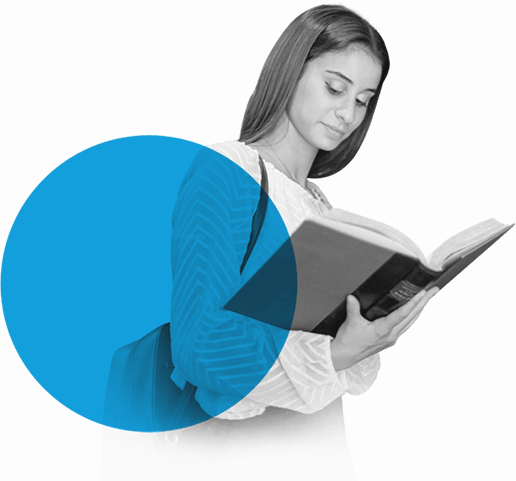
Is the IB Curriculum Right for Your 5-Year-Old?
Choosing a proper curriculum for your child at such an early age may be a difficult decision. The IB curriculum options are so many at times that parents remain confused as to whether it is suitable or not for young learners, especially 5-year-old children. Let's see how the IB curriculum gets appropriate, its unique programmes, differences from other educational systems, and why it will be the right choice for your child.
What is the IB Curriculum?
The IB is an international curriculum that produces well-rounded, independent, and lifelong learners. The IB Curriculum is inquiry-based rather than exam and rote learning-based. This allows the student to explore, ask questions, and consequently make connections to real-world issues. Its curricula are intended to encourage both thinking skills and personal growth. In general, they aim to promote critical thinking, empathy, and intercultural understanding.
Overview of IB Programmes
The curriculum of IB is divided into four major programs, based on different age groups: Early Years Programme (EPYP): It is for students who are 3-6 years old, and like the name suggests EYPP is very much play based and inquiry based. Play and exploration is for young children to be able to develop essential stages of development such as problem solving, social interactions and innovations. Less academised field is stressed, as it combines education with progression in social, emotional, as well as physical aspects.
PYP: For ages 3-12, the PYP secures a full curriculum that is strong in intellectual and social-emotional growth. The children learn through units of inquiry, where they absorb all the knowledge outside of one or more subjects, bringing it all together and making appropriate use of that knowledge within real life. This enables learners to be lifelong learners and also to take a very active part within their communities.
Middle Years Programme (MYP) aged 11-16, is designed on intellectual challenge where students relate the theoretical concept in learning towards the real world. Through such a curriculum, the student's ability to think and research critically will be enhanced, coupled with an intercultural awareness for further learning.
Diploma Programme: It is a two-year rigorous program for the students of the age group 16 to 19. Its core subjects consist of six groups, but a student has to go through the following three core components: Theory of Knowledge (TOK), Extended Essay and CAS. The DP earns acclaim worldwide for its academic excellence and individual research.
How is IB Different from Other Curriculums?
The following are the ways in which the IB curriculum inventively unfolds from other educational systems. First, it is an inquiry approach in which learners are expected to question their knowledge and pursue meaningful learning by themselves. This is the opposite of curricula that may emphasise rote learning and end-of-term exams as key characteristics of the learning process.
The second significant characteristic of the model is its global orientation. Thus, for example, to afford them a sense of international-mindedness, IB students are introduced to various cultural viewpoints. It makes them aware of the different cultures of the world, problems that plague the world, and ethical responsibility in the global community, thus turning them into socially awkward beings in the growing global village.
Finally, with the aid of IB, students are afforded the opportunity to study under the globally based curriculum and this is distinct in that it seeks to attain academic as well as personal growth. This will help in determining whether they are responsible citizens who handle emotions in a positive way.
Who is the IB Curriculum For?
This curriculum is ideal for families who want their children to be exposed to an internationally recognized and holistic approach toward education. It will work best in curious and open-minded children who have a desire to learn and think critically. Also, it works very well for a globally mobile or an international university-bound family.
For young learners, the EPYP and PYP offer a supportive environment to bring in core inquiry-led learning, creativity, and emotional wellbeing. Since kids can start learning from the age of 5 years old, children will have an opportunity to enjoy studying under the nurturing environment of the IB from an early age.
The benefits of IB EPYP, PYP, MYP, and DP
Early Years Program (EPYP): EPYP promotes learning by way of play and inquiry for holistic development of 5-year-olds. Curiosity and imagination help build the confidence of any child to be an eager learner.
PYP: This is an extension of what they develop skills in at EPYP. It encourages independence and cooperation since students work together in teams, and solving problems helps take control of their own learning in a transdisciplinary approach.
There is, first of all, the Middle Years Programme (MYP), which starts to be available when children reach their adolescence, with academic rigor commensurate with preparation for further higher education. For this period, MYP focuses on a series of research and analytical skills for young people while integrating intercultural understanding and personal development at all times.
Diploma Programme (DP): The DP is an excellent bridge to university education. It fosters a challenging, academically rigorous learning experience that prepares students as active citizens of the world and successful in higher education, with universities all around the world valuing the DP as a highly regarded qualification.
Conclusion:
The programme should be the Early Years Programme (EPYP), which is intended for children who are five-years old and provides the full range of intellectual and personal development in the atmosphere of care and support. Program being international – based, the inquiry based, with focus on academic and personal development, the IB curriculum prepares children for further learning sessions. If your child’s passion of discovering the world independently, then the International Baccalaureate, or the IB, might be the right programme for your child.
© Knowledgeum Academy
